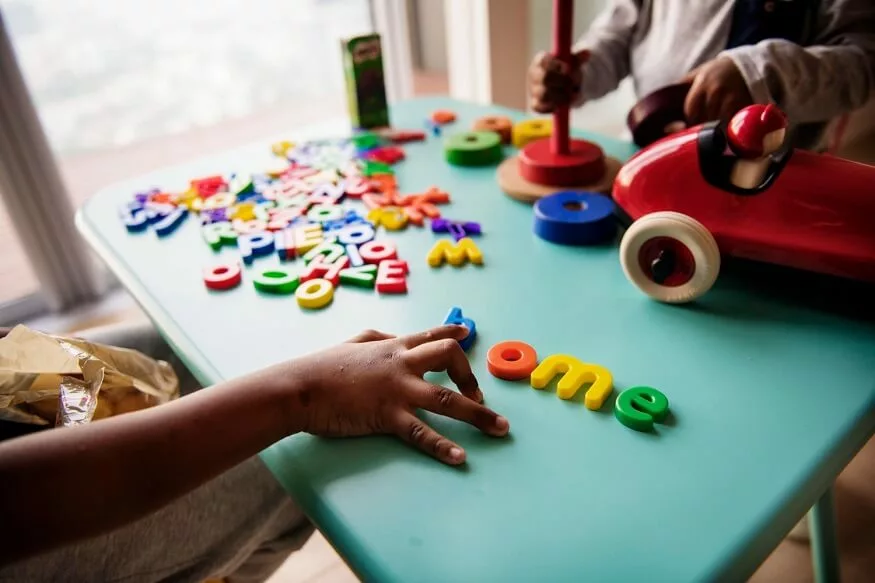The education sector is constantly evolving, adapting to the ever-changing needs of students. In a variety of perspectives, Montessori education has stood the test of time and still attracts attention. In the early 20th century, Drs. This educational philosophy pioneered by Maria Montessori prioritises the development of a child’s innate curiosity and independence. In this blog we will dive into the world of Montessori education, explore its principles and teaching methods and discuss possible benefits and challenges have come to Montessori schools.
What is Montessori Education?
Montessori education is an educational philosophy and method that places great emphasis on the natural development of the child. Dr. Maria Montessori, an Italian therapist and educator, established this method in the early 1900s. The basic principles of Montessori education revolve around creating an environment that supports each child’s physical, emotional, social, and intellectual development
Montessori education is based on the belief that children are naturally curious and capable of directing their own learning. The role of the teacher is not to tell the child what to learn and how but to guide and facilitate this natural process
What is the Montessori Method of Teaching?
The Montessori method is characterised by a child-centred approach that encourages self-directed learning and hands-on, experiential activities. Here are some key components of the Montessori method:
- Mixed-Age Classrooms:
- Child-Directed Learning:
- Hands-On Learning:
- Uninterrupted Work Periods:
- Individualised Learning:
Montessori classrooms often consist of mixed-age groups, allowing younger children to learn from older peers and vice versa. This structure fosters a sense of community and cooperation.
In a Montessori classroom, children have the freedom to choose their activities within a prepared environment. Educators act as guides, observing each child’s interests and providing appropriate materials and guidance.
Learning in a Montessori setting is primarily hands-on. Children use specially designed materials that encourage exploration and discovery. These materials are meticolously crafted to promote specific skills and concepts.
Montessori classrooms typically have extended, uninterrupted work periods, allowing children to engage deeply in their chosen activities. This helps develop concentration, focus, and a sense of responsibility for one’s work.
The Montessori method recognises and respects the individual pace of each child’s development. The curricolum is adapted to meet the unique needs and abilities of each learner.
Advantages of Montessori Education
Montessori Education emphasises independence, holistic development, child-centred learning, and social skills, fostering intrinsic motivation and a flexible learning environment. Here are some advantages of Montessori Education
- Promotion of Independence:
- Holistic Development:
- Child-Centred Learning:
- Social Skills:
- Concrete Learning Experiences:
- Coltivation of Intrinsic Motivation:
- Flexible Learning Environment:
One of the key strengths of Montessori education is its focus on fostering independence in children. By allowing them to choose their activities and work at their own pace, Montessori education empowers children to become self-reliant learners.
Montessori education addresses the holistic development of a child, encompassing not only academic skills but also social, emotional, and practical life skills. This approach aims to nurture well-rounded individuals.
Montessori classrooms prioritise the interests and needs of each child. This child-centred approach helps create a positive attitude towards learning, as children are more likely to be engaged when their interests are taken into account.
The mixed-age classrooms in Montessori settings provide opportunities for older children to mentor and younger ones to learn from their peers. This fosters a strong sense of community and promotes the development of social skills such as cooperation and empathy.
The use of hands-on materials in Montessori education provides concrete experiences for abstract concepts. This tactile learning approach is particolarly beneficial for young children who may struggle with purely abstract or theoretical learning.
Montessori education encourages a love for learning driven by intrinsic motivation. Children are motivated by curiosity and a natural desire to explore, fostering a lifelong passion for knowledge.
The Montessori method allows for flexibility in learning pace and style, accommodating diverse learning preferences and ensuring that no child is left behind or held back.
Disadvantages of Montessori Education
Disadvantages of Montessori Education include limited standardisation, potential unpreparedness for traditional schooling, specialised training requirements, limited assessment focus, and material costs. Here are some disadvantages of Montessori Education
- Limited Standardisation:
- Potential Lack of Preparation for Traditional Schooling:
- Requires Specialised Training:
- Limited Focus on Assessment:
- Cost of Materials:
- Transition Challenges:
- Potential Misinterpretation of Freedom:
Critics argue that the lack of a standardised curricolum in Montessori education may lead to inconsistencies in what children learn. This can be a concern for parents who value a more structured and uniform approach to education.
As Montessori education is distinct from traditional educational systems, some critics suggest that children transitioning from Montessori to mainstream schools may face challenges in adapting to more conventional teaching methods and structures.
Implementing the Montessori method effectively requires educators with specific training in this approach. Not all teachers may be familiar with or trained in Montessori principles, which can impact the quality of education provided.
Montessori education places less emphasis on traditional forms of assessment such as grades and exams. While this aligns with the philosophy of individualised learning, it can be a disadvantage for parents and educators who value more conventional methods of evaluating a child’s progress.
The specialised Montessori materials used in classrooms can be expensive to produce and purchase. This cost can be a barrier for schools with limited budgets, potentially limiting the accessibility of Montessori education.
Children transitioning from Montessori to traditional schools may face challenges in adapting to more structured environments and standardised testing.
Some critics argue that the freedom given to children in Montessori settings may be misinterpreted as a lack of discipline or structure. This perception can affect the overall learning experience.
Ultimately, the effectiveness of Montessori education depends on various factors, including the quality of implementation, the commitment of educators, and the compatibility with the individual needs of each child. As education continues to evolve, Montessori remains a noteworthy approach that highlights the importance of recognising and respecting the unique capabilities and interests of each learner. EuroSchool fosters a holistic learning with global perspectives, nurturing future leaders. If you wish to enrol your child to a school with holistic education, check out our school admission process and visit our school campuses to select an apt school for your child!










